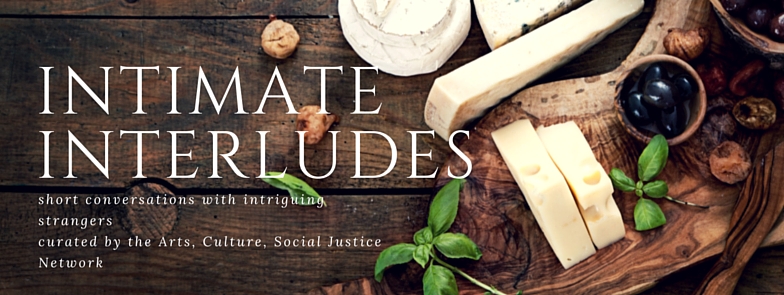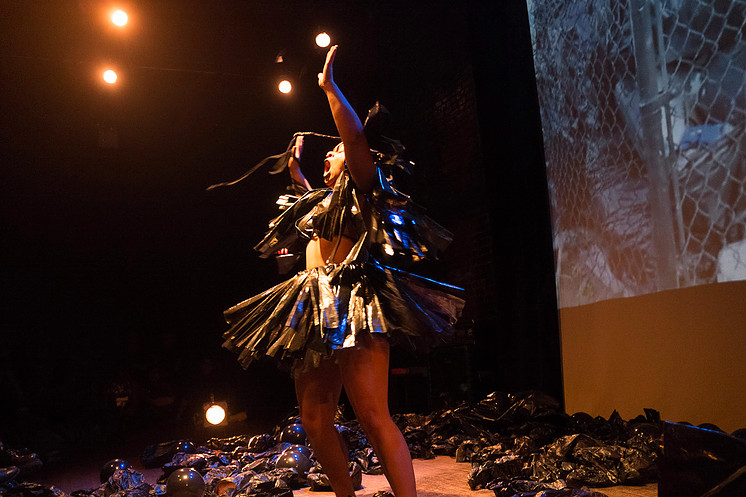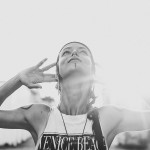Leah Song and Taja Lindley talk inspiration, instigation and the importance and necessity of being directly connected to community in creation of their work.
TL: What issues burn hot for you and how do they inform your artistic practice?
LS: I am at a moment in my work of really considering and coming to understand both the power of the stage and my responsibility to that power. The work that I do is to create an art that is evocative of questions and leaves the audience in a place of reflection in their own lives. I am increasingly drawn to designing a space that beckons questions as opposed to a space that dictates answers. I have been involved in many front line struggles, but I often feel our personal politics and pursuits of justice are nuanced and that a blanket solution is not as empowering as encouraging local communities to work together to find their own solutions to the struggles they are facing. Rising Appalachia has a piece that talks about the prison industrial complex and our hope is that by bringing in prison reform and restorative justice groups, people can get involved directly. I believe that issues of coastal restoration, mountain top removal and Indigenous rights and sovereignity are powerful and important parts of a more just society, and that my responsibility as traveling artist is not to provide solutions that are unique to each place, but to be a bugle horn and to call out those injustices and bring them into the light. my hope is to be a dot connector.
TL: Connecting dots. I do that too. As an interdisciplinary, multi-media artist, there are a lot of dots I connect — between the past/present/future. My solo performance work draws connections between discarded materials and the ways in which Black life gets treated like it’s disposable. I make connections between the movement for Black lives and the trash bags to create a bag-lady performance ritual that is all about remembering. Sankofa. My solo performance work is largely concerned with memory: what do we choose to hold onto and what do we choose to let go of? As individuals and as a community. How do we choose to (not) release identities, habits, beliefs, fears, relationships and memories?
What’s also burning hot for me is how I do my work. My priority this year is to share my work in public spaces and places, mostly outdoors. I feel a sense of urgency to take my work into the streets, to take up public space.
What do you believe is our (artists’) responsibility with the stage? And how might that be relevant for performances in public spaces?
LS: Yeah, Thank you for your powerful work, and voice and public presence with your work. The physical and literal connections you are making between the excess of waste in our culture and the nation’s deep seated racism feel deeply powerful to the the struggle.
I started my work as a street performer, and never felt drawn to the stage, at least initially. I wanted to be involved in a living art form, that was based on community input, and interaction, as a song writer and song collector. It was an incredible lens to study what drew people in, what held their attention, what people would stop and pay attention to, and of course what no one paid attention to at all. It felt for many years like I was putting to test my craftsmanship
and learning what would draw people closer. I think that was a powerful tool of honing. My way, of staying as much in service to current issues facing our communities is to show up and learn from the people on the ground. And in turn hope that we can offer some of that connection and outreach to the people who show up.
TL: I’m drawn to the stage (I love to perform!) but, like you, I started my work through street performance. It wasn’t until I joined Body Ecology Performance Ensemble in 2011 that I began to identify as a performance artist. My first two works with the ensemble were outdoor, site specific performances in New York City. While some folks came to see our work, many folks were strolling the neighborhood, didn’t know what was going on and decided to stay and watch. Performing in public spaces has taught me to never take the audience for granted. What will I create and perform to encourage people to stay?
Too many times in the “performing art” world I sit in the audience and think: WTF am I watching? I feel alienated from what is happening on stage. Granted, not every piece of art will speak to me. But there can be a culture in the “art world” (what is that anyway?) to create art for other artists, to create work that is cerebral and requires a lot of thinking. And while I don’t mind working my critical thinking muscle, I want to feel something. To be touched, moved and inspired by what I’m witnessing. I remember the first time I saw Rising Appalachia perform at the Alternate Roots Conference in 2012. I didn’t know any of your songs, but I felt compelled to stand up and dance, and so did the rest of the folks in the audience. So while you and I may have different experiences in the world (due to race, class, geography, etc), I am able to access and enjoy your work.
Those access points happen when artists are authentic on stage. And that is my responsibility on stage: to speak my truth -my medicine. A performance can be a powerful healing opportunity – for me and for the people who witness. So when I prepare for a performance, I prepare to be a vessel of healing and transformation. I pray before I perform and I pray afterwards. to ensure that the people who witness aren’t left feeling unraveled.
Taja Lindley is a courageous, truth-telling creatress; an unapologetically proud queer femme feminist; daughter of a single mother; eldest of three sisters; committed to the wellness, creativity and bodily autonomy of women and girls of color. An 80’s baby born in New York and raised in the South, she currently lives in Brooklyn, New York working as the Managing Member of Colored Girls Hustle. In addition to being a performing and visual artist, she is a member of Harriet’s Apothecary and Echoing Ida.
Leah Song is an 11 year touring and teaching artist. Musician, collector of folk and roots music, song writer, activist, teacher, founder and co-manager of Rising Appalachia, poet, midfulness and yoga facilitator, backyard herbalist, forever a student.




Leave a Reply